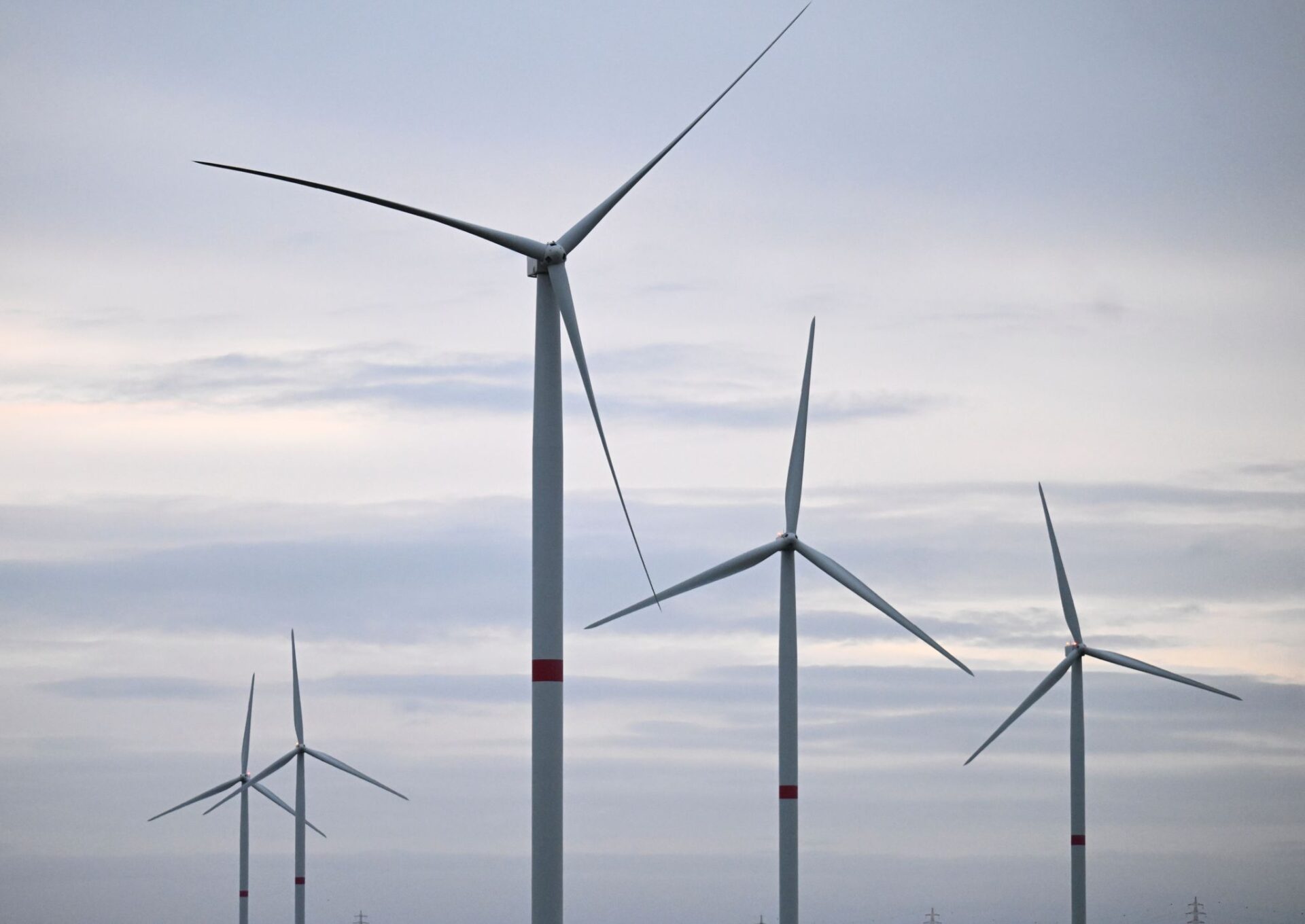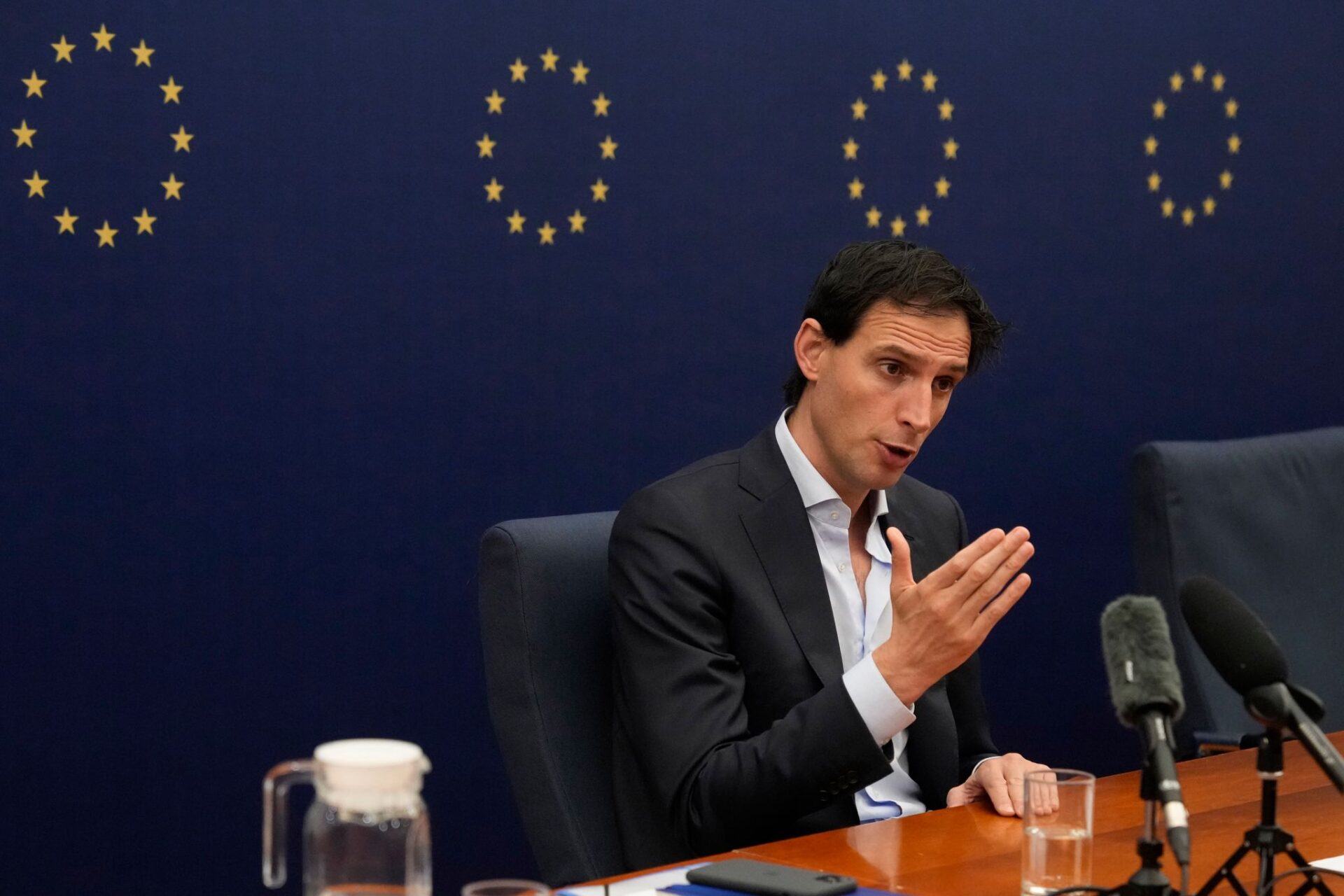 Have the article read by OpenAI (Beta). Please note that AI translations may take some time to process.
Have the article read by OpenAI (Beta). Please note that AI translations may take some time to process.UN Secretary-General António Guterres has called on the global community to break out of the “deadly cycle” of global warming and melting ice at the poles prior to the upcoming COP28 climate summit in Dubai, which starts this Thursday. “Leaders must act to limit global temperature rise to one-and-a-half degrees Celsius, protect people from climate chaos, and end the fossil fuel age,” Guterres told journalists in New York on Monday.
The summit is marked by the controversy that the host responsible for setting the agenda is the United Arab Emirates. The summit’s President-Designate is Sultan al Jaber, who is also the country’s industry minister and head of the Abu Dhabi National Oil Company (ADNOC).
In Dubai, a first assessment will be made of the progress achieved by countries towards the goals set by the 2015 Paris Agreement and future action. In that agreement, the international community agreed to limit global warming to less than two degrees compared to pre-industrial levels, or even one-and-a-half degrees if possible.
The target was agreed in order to avoid exceeding dangerous tipping points with irreversible consequences and avert the most catastrophic consequences of climate change. However, according to the UN Environment Programme (UNEP) the planet is currently heading towards a world that is almost three degrees warmer.
Therefore, the stakes of the conference are high: agreeing on a phase-out of fossil fuels and ensuring sufficient financing for a just transition are important items on the agenda. As are efforts to try and keep the scientifically recommended global warming target “alive” in a context of growing mistrust in government commitments and between rich countries and the global South.
“We know that 2023 will be the warmest year on record and that we have even surpassed the target of two degrees Celsius of global warming. We simply need to do more,” said Tina Kobilšek from the Slovenian Ministry of the Environment and Slovenia’s chief negotiator.

From fossil fuels to renewables
According to the EU Council’s conclusions prior to COP28, the EU will work to ensure that the final agreement at COP28 includes an end to the production and consumption of all fossil fuels (coal, oil and gas) for energy use, together with targets to triple renewable energy and double energy efficiency.
With regard to the dates being considered for the end of fossil fuels, sources from the Spanish Presidency of the EU have said that they are taking the arguments of the Intergovernmental Panel on Climate Change (IPCC) and the International Energy Agency as a reference. They speak of a 2030 horizon for electricity and a 2050 horizon for the entire energy sector.
“Without phasing out fossil fuels, we will not be able to halve greenhouse gas emissions by 2030 and keep a one-and-a-half degree world within reach,“ said Jennifer Morgan, Climate Protection Commissioner at the German Foreign Office. It said in a statement that the government “will work with the European Union to call for the expansion of renewable energies“.
The goals of halving greenhouse gas emissions by 2030 and increasing the production of renewable energy are in line with the UN’s 15-year global framework, centred on the 17 Sustainable Development Goals (SDGs). EU members and candidates alike are pushing domestically for changes – often with support from Brussels.
European Commissioner for Innovation, Research, Culture, Education and Youth, Iliana Ivanova, said that Bulgaria’s Hydrogen Valley, for example, is among the nine EU-wide projects selected for funding by the Clean Hydrogen Partnership. Located near Stara Zagora, it aims to produce at least 500 tonnes of hydrogen a year. The EU is funding it with a grant of eight million Euro. The project coincides with the research and innovation approach as outlined in the EU’s hydrogen strategy, REPowerEU and the upcoming Hydrogen Valley Roadmap.
Romania’s President Klaus Iohannis will support the need to urgently implement the commitments already made to combat climate change. He will also stress the importance of climate and environmental education in the Romanian education system. At the same time, at COP28 he will highlight Romania’s ambition to further reduce greenhouse gas emissions and its openness to cooperation in a multilateral framework on issues relevant to the country’s climate diplomacy.
On November 20, the Albanian parliament approved with 73 votes the changes in a national tax law that also provides for the increase of the carbon tax for coal and some of its by-products. The decision is related to the decarbonisation approach, in line with the green policies of the European Union. Albania is also part of the 192 UN member states that have approved the 2030 Agenda for Sustainable Development. Its government is also engaged in the continuation of plans and projects to make the Sustainable Development Goals a reality.

Loss and Damage Fund back on the table
Although sending a clear message on mitigation will be the most important battle of this year’s COP28 summit, it will not be the only one – for a balanced outcome it will also be necessary to make progress on solidarity, especially in relation to the new Loss and Damage Fund. The instrument, designed to compensate for the losses and damage caused by global warming in the poorest countries, was agreed on last year at COP27 in Sharm el-Sheikh.
Last year’s negotiations between rich and developing countries led to a compromise. The instrument will remain with the World Bank for four years, a solution unwelcome to the poorest countries. The final decision is to be taken in Dubai, and a tough battle between North and South is expected.
The Loss and Damage Fund is meant to deliver 100 billion US dollars in aid each year for vulnerable countries to draw on. Developing countries expect rich industrialised countries in particular to give money – some are hoping for annual sums worth hundreds of billions. While substantial, the promised money is a fraction of the two trillion US dollars the UN estimates will be needed annually by 2030 to fund efforts to adapt to climate change and related aid for developing countries.
European Commissioner for Climate Action, Wopke Hoekstra, who will negotiate at COP28 on behalf of the EU, made it clear that he believed China should be a contributor, not a beneficiary of the Loss and Damage fund. “China made tremendous progress. It is the second largest economy in the world. It has roughly the same number of electric vehicles as the European Union. (…) With all that affluence and with all that economic power also comes responsibility,” he said.
A recent agreement between the United States and China on climate collaboration bodes well for the possibility of increasing global efforts against climate change. In particular, agreements to triple renewables by 2030 and to increase support for adaptation are being sought at COP28. The increase in renewables (along with the commitment to cut methane leakage) is the highlight of the US-China agreement, and could involve other powers.
COP29 presidency up for grabs?
The COP summits typically rotate between five regional groups. The major issue of which country will host COP29 in 2024 is already facing diplomats ahead of COP28. Currently, the presidency for next year’s conference is earmarked for Eastern Europe.
Bulgaria bid for the honour but its bid was blocked by Russia. Bulgaria’s Environment Minister Yulian Popov told POLITICO that Russia’s line of reasoning “is that they don’t believe that Bulgaria or any other EU country will be impartial in running COP29”. According to him, Russia’s hidden argument is that it is “being blocked by EU countries about various things in relation to the war against Ukraine“, and thus it strikes back.
Apart from Bulgaria, Armenia and Azerbaijan have offered to host, but both are hindering each other over the ongoing Nagorno Karabakh conflict; Russia is blocking Bulgaria and the Czech Republic because they are EU countries, but is supporting Belarus.
The 28th United Nations Climate Change Conference begins in Dubai on November 30 and will run until December 12. It is expected to attract 70,000 participants from 197 countries.
This article is published weekly. The content is based on news by agencies participating in the enr.
